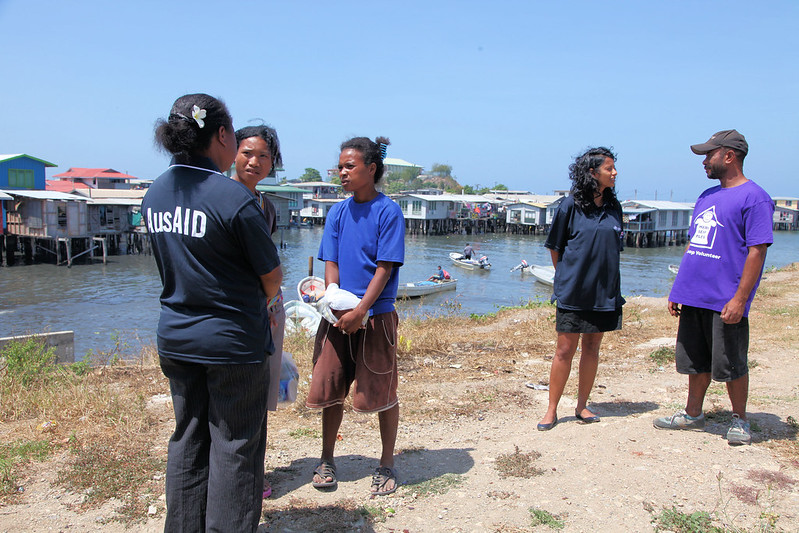
Time for a human rights based approach in Australia’s overseas development assistance program
By Annabel Dulhunty
30 August 2022
With a change of government, there is scope to reinvigorate Australia’s aid program to focus on the needs of the most marginalised and adopt a human rights based approach (HRBA).
Hallmarks of an HRBA include that all development programs must aim to realise human rights as established in the Universal Declaration of Human Rights and other human rights treaties. In addition, development programs should assist ‘duty bearers’ (such as the government) to fulfil their human rights obligations, and citizens to claim their rights.
The Department of Foreign Affairs and Trade (DFAT) states that human rights are important and that “Australia is strongly committed to advancing human rights globally”. However, Australia is yet to adopt an HRBA in its overseas development assistance program.
Why is this important?
A rights based approach to development or an HRBA is not new – work was done to clarify the approach way back in 2003 when UN agencies developed the Common Understanding on HRBA to Development Cooperation. An HRBA is also not without its criticisms. While Canada, Sweden, Germany, Denmark and New Zealand, amongst others, have adopted an HRBA – many have questioned how much this approach affects programming in practice. In addition, other trends, such as the adoption of feminist foreign policies by many countries, may well seem to have superseded HRBAs. Yet a feminist foreign policy and an HRBA can work well in conjunction.
An HRBA remains important all these years later, for four key reasons.
First, focusing the aid program on the ‘rights’ of individuals is markedly different than delivering an aid program which is viewed as ‘charity’ or ‘generosity’. Given Australia’s colonial history and disproportionately high contribution to climate change in the region, the development assistance program is better framed as an obligation than as benevolence. When we focus on the rights of individuals, they can hold not only their own governments but also donor governments to account.
This leads to the second point, that an HRBA requires transparency and accountability – in reporting, in what has been spent, and in how targets have been achieved. The aid program would need to adopt a ‘do no harm’ approach – providing greater evidence of assessing any likely negative impacts of aid programs. At present, Australia’s overseas development program has become less and less transparent and accountable – as demonstrated through the closing of the Office for Development Effectiveness and refusal to report key expenditure.
Third, an HRBA requires that resources are focused on the poorest and most vulnerable. Within each country that Australia provides development assistance to, there is a wide variety of people with varying income levels and privilege. Currently, it is not clear how much of the aid program tackles inequality and a pro-poor agenda for the rights of the most marginalised.
Finally, an HRBA moves the aid program away from the slippery slope of ‘national interest’ objectives. While reducing poverty and inequality in our region should be in the national interest, the definition of ‘national interest’ is certainly vague enough that it can lead to greater investment in donor business interests with little concern for how this may impact communities overseas. For example, there has been strong criticism of the UK’s development program in recent years which has been accused of “chasing colonial post-Brexit fantasies” in its insistence on funding UK business interests abroad.
While an HRBA is no silver bullet for perfect development assistance, it at least provides a framework of accountability which focuses aid on both the institutional strengthening of governance mechanisms and on the pressing needs of communities facing intersectional disadvantage.
About the author/s
Annabel Dulhunty
Annabel Dulhunty is a lecturer at the Crawford School of Public Policy at The Australian National University. She previously worked in the aid sector managing large aid programs with international teams.
